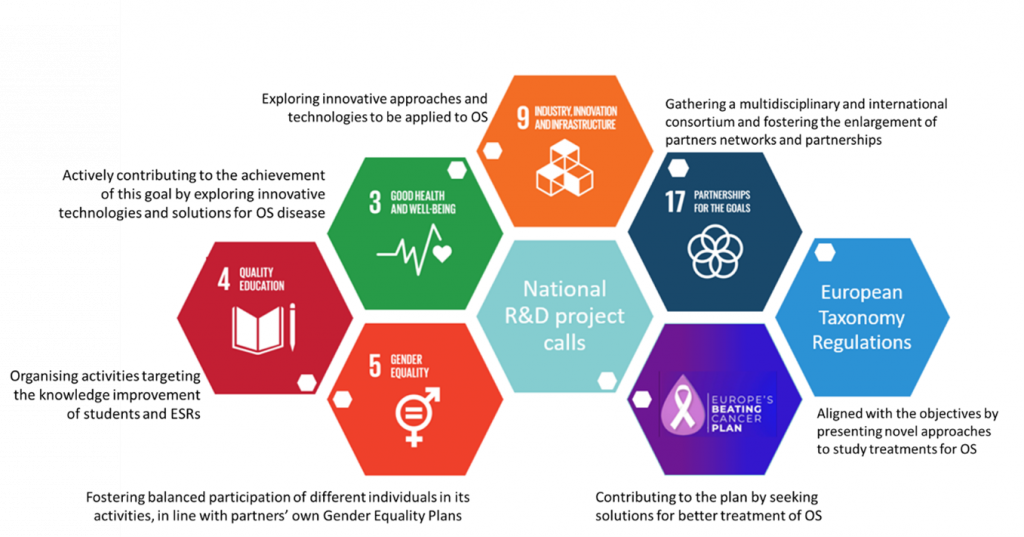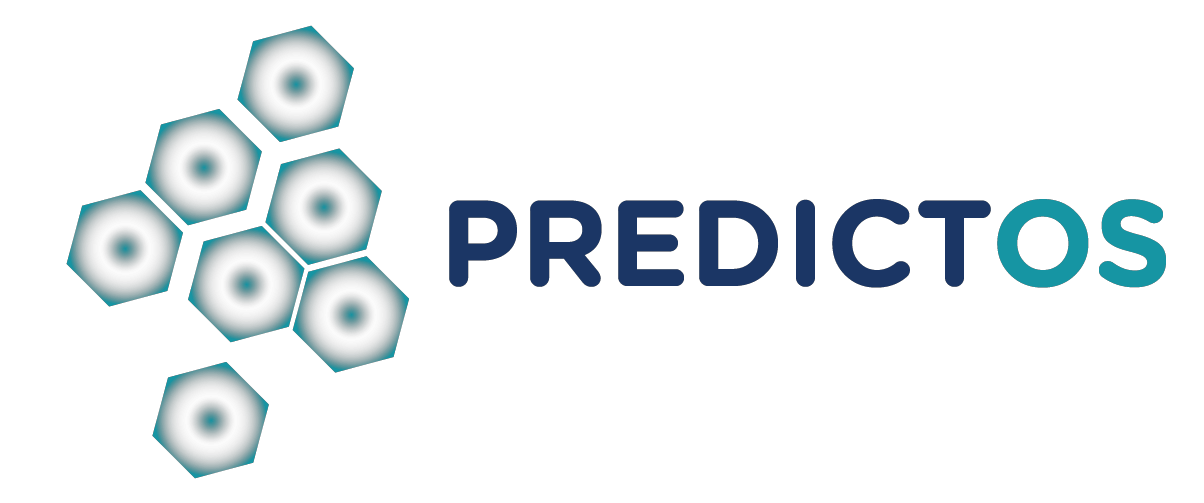PREDICTOS is a collaborative project in the field of predictive in vitro and in silico models for investigating novel therapies against osteosarcoma (OS) and to develop novel, advanced, and reliable predictive tools for the design of biomaterials and scaffolds for bone tissue engineering.

The consortium will explore innovative and improved practices to stimulate the enhancement of their scientific expertise, expand their medical and industrial network and establish a long-term network.
We are aligned with
Sustainable Development Goals
Europe’s Beating Cancer Plan
Portugal’s Healthcare Research Initiatives


